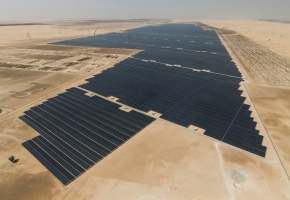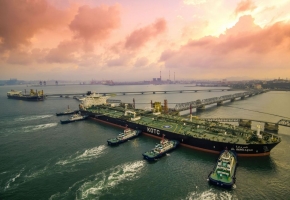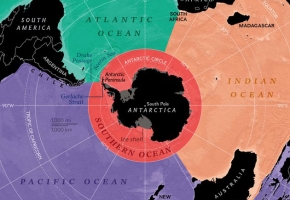Cleopatra’s birthplace sees ‘dramatic surge’ in building collapses as sea level rises

The historic Egyptian city of Alexandria – the birthplace of Cleopatra – is experiencing a “dramatic surge” in building collapses linked to coastal erosion and rising levels of the Mediterranean Sea, new research has found.
Building collapses were once rare in this port city, but have accelerated from approximately one a year to a staggering 40 a year over the past decade, as sea levels rise and seawater seeps beneath city foundations, according to the study published by the University of Southern California.
Founded by Macedonian ruler Alexander the Great more than 2,000 years ago, Alexandria is one of the oldest cities in the world and is currently among the most populated in Africa, home to 6 million people. It’s also one of the most vulnerable to sea level rise, which threatens its historical heritage.
Nestled between the thousands of modern, mid-rise buildings are ancient structures designed and erected over centuries by Alexandria’s diverse ruling dynasties.
They have endured natural disasters, including earthquakes and tsunamis, but now rising seas and intensifying storms are “undoing in decades what took millennia of human ingenuity to create,” said Sara Fouad, lead author on the study and a landscape architect at the Technical University of Munich.
The researchers analyzed the impact of shoreline changes in Alexandria using a variety of methods.
They created a digital map to identify locations of collapsed buildings and cataloged details about each one using data collected from site visits, government reports, news archives and statements from private construction companies, spanning twenty years from 2001 to 2021.
They combined satellite imagery and historical maps from three different years – 1887, 1959 and 2001 – to better understand how Alexandria’s 50-mile coastline has moved dozens of feet inland over the past 20 years, raising groundwater levels and bringing them into contact with the foundations of coastal buildings.
The scientists also analyzed isotopes in the soil to understand the impacts of seawater intrusion. This “revealed that buildings are collapsing from the bottom up, as seawater intrusion erodes foundations and weakens the soil,” said Ibrahim H. Saleh, a soil radiation scientist at Alexandria University in Egypt and one of the study’s co-authors.
Even a small increase in sea levels – “just a few centimeters” – can have devastating effects, said Essam Heggy, a water scientist at USC and a study author. About 7,000 old buildings in Alexandria are at risk of collapse.
Alexandria is not alone in facing threats from sea-level rise and coastal erosion as the world warms. Many Mediterranean coastal cities face similar risks, as do parts of California’s coastline.
Source: CNN







